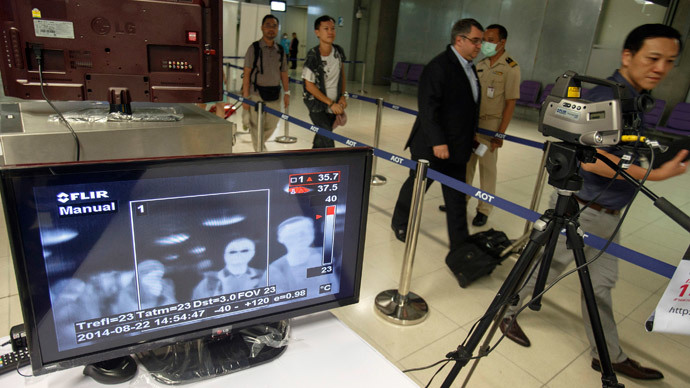European anti-terror plan wants 42 pieces of data from air travelers

Passengers flying to and from Europe will now be forced to submit a long list of personal details, which can be stored for up to five years. The counter-terrorism plan would record data such as meal preferences and how many flights someone has missed.
The directive has been introduced by the European Commission and requires air travelers to fill in 42 separate pieces of information. Some of the fields would not cause too many eyebrows to be raised, such as nationality or frequent flyer information. Others, such as meal preference or the number of one-way tickets bought are slightly more puzzling, the Guardian reports.
The information would be stored for five years and would be given to security personnel upon demand. The European Commission says the move is necessary in order to help combat terrorism and has been championed by interior ministers across the EU. The ministers came to a consensus while they were gathered in Paris, for the ‘Je suis Charlie’ March that introducing the measure was imperative to tackle terrorism concerns.
The ministers issued a joint statement saying there was a “crucial and urgent need to move toward a European passenger name record system,” and immediate progress will be on the agenda when EU interior ministers meet in Riga on Thursday, according to the Guardian special report.
European #counter-terror plan involves blanket #collection of #passengers’ data... http://t.co/XXbZK8IRofpic.twitter.com/CDvFJnFEOB
— Terrorism Updates (@terrorism_info) January 28, 2015
The proposal would create a pan-European ‘super database,’ with the information on tens of millions of air travelers shared amongst the 28 EU countries.
Not surprisingly, human rights groups have criticized the move for what they perceive is a blanket harvesting of personal information, and as being a severe incursion on one’s privacy.
READ MORE: Counter-terror bill published, slammed by civil liberty groups
Jan Philipp Albrecht, vice chairman of the European parliament’s civil liberties committee, was scathing saying: “The commission plans are an affront to the critics of the European Parliament and the European Court of Justice who have said that data retention without any link to a certain risk or suspicion isn’t proportionate.”
“It is an open breach of fundamental rights to blanketly retain all passenger data,” he added. “Instead of a full take of PNR [passenger name record] data, we need a focus on suspects and risk flights. The Paris attacks have shown that mass retention was not effective in fighting jihadis.”
European Commission wants 42 items of personal info from passengers flying through Europe for security. Would you be comfortable with this?
— LBC (@LBC) January 28, 2015
“The proposed surveillance of all travelers is a symbolic measure on the cost of EU citizens’ civil liberties and effective security,” Albrecht, who is an MEP with the German Green Party, said, which was reported by the Guardian.
However, Timothy Kirkhope, a Conservative member of the European Parliament’s Civil Liberties Committee, believes it is possible to find a consensus to push through the revised proposal.
READ MORE: EU inquiry draft finds NSA, GCHQ activities ‘illegal’ – report
“I want an agreement that safeguards lives and liberties by offering stronger data protection rules whilst also making it much harder for a radicalized fighter to slip back into Europe undetected,” he said earlier this month.
“EU heads of government and home affairs ministers would not ask for this agreement unless there was a clear and present need for it,” he added, as reported by the Guardian.
Please support my PNR proposals ; on the table for nearly three years! We must give EU citizens more protection pic.twitter.com/dJEKhXzOnn
— Timothy Kirkhope MEP (@TimKirkhopeMEP) January 27, 2015
The decision by the European Commission would signal a U-turn from a decision made by the European Parliament’s Civil Liberties Committee in April 2013, which rejected the European Commission’s proposal for the recoding of Passenger Name Record (PNR) data. The Civil Liberties committee said that airlines should collect PNR data, during check-in. In 2011, the European Commission wanted air carriers to provide EU countries with the data of passengers, who were entering or leaving the EU.
READ MORE: Islamists plan Christmas attacks on 5 planes in major European hubs – report
Some adjustments have been made to the 2011 directive, such as introducing stricter conditions for accessing passenger records and its possible transfer to a third party country, while also giving travelers better information about how to access their data and request modifications.












